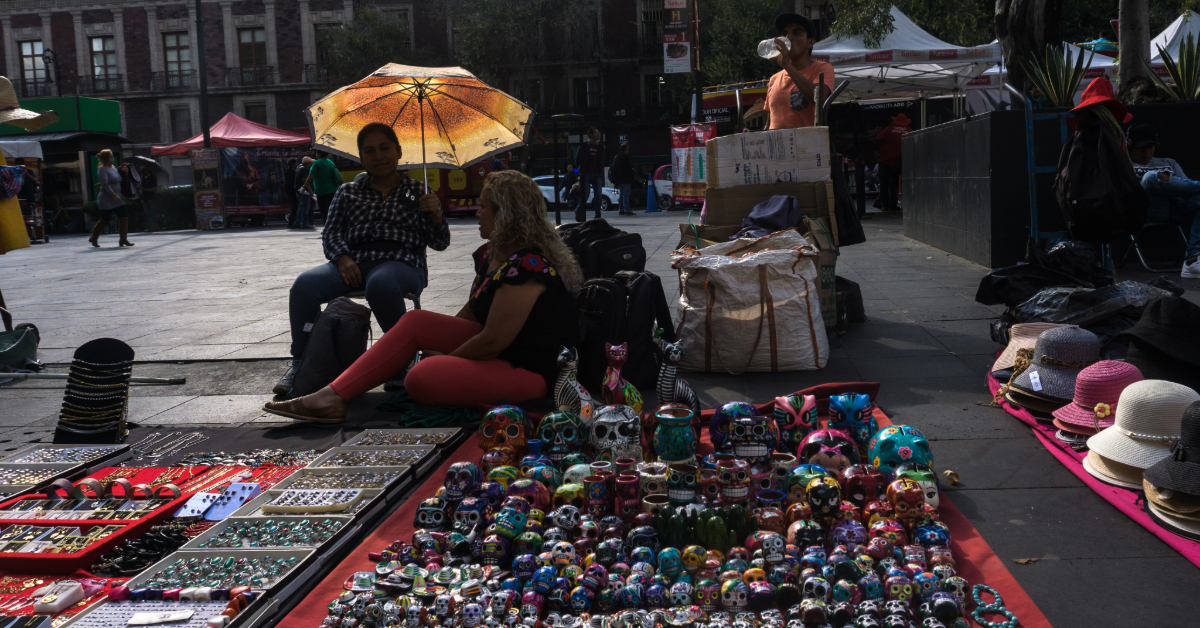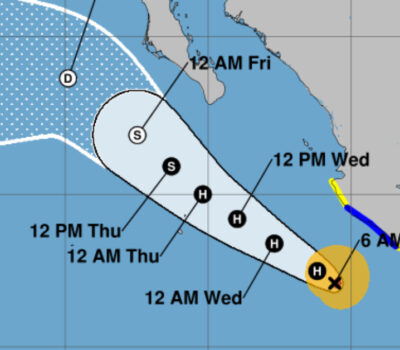Puerto Vallarta, Mexico – Extortion and violence linked to organized crime continue to plague Mexico’s informal workforce, a sector that comprises over half of the country’s employment. Vendors and street market merchants, struggling to make a living, face relentless pressure from criminal cartels and local bosses demanding protection money.
Street vendors across Mexico, dealing in everything from food and clothing to technology and jewelry, are held hostage by the pervasive “floor fee” extortion racket. In a grim reality, motorcyclists, often armed and masked, approach these vendors, demanding payments. Refusal or inability to pay this criminal tax often leads to deadly consequences.
In recent times, even polleros, those who transport migrants, have found themselves in the crosshairs of violence. In Toluca, the capital of the State of Mexico, market operators have resorted to hiring private security due to the relentless wave of extortions and kidnappings that local authorities struggle to combat.
Organized crime has identified these informal taxes as a lucrative source of income, siphoning billions of pesos from the Mexican economy. The situation has worsened over the years, with the Familia Michoacana cartel institutionalizing and expanding this practice into industrial activities. Their approach is eerily reminiscent of mafia operations in Italy, as they force merchants to pay a fee per square meter of business space and another for protection against rival cartels, resorting to violence when payments are not met.
Extortion ranks third among common crimes in Mexico, trailing only fraud and theft, according to a survey by the statistics institute (Inegi). A staggering 92% of such crimes go unreported or uninvestigated due to victims’ fear of retribution and a lack of trust in corrupt law enforcement agencies. Each year, approximately 20 million people fall victim to these crimes in a country of 126 million inhabitants. In 2022 alone, kidnappings affected 77,825 individuals, with 49% being held for just one day to instill fear and extract payments.
Tepito, a notorious area in Mexico City governed by a criminal cartel of the same name, serves as a microcosm of this extortion scheme. Tepito’s labyrinthine market streets house countless vendors, where criminal elements regularly collect their protection fees, often under the nose of law enforcement. Merchants are burdened by multiple layers of extortion, with fees demanded by the cartel, local authorities, and others, leaving them struggling to make ends meet.
This parallel administration of extortion within the informal workforce operates with the efficiency of a public treasury. However, citizens, disillusioned by their inability to seek help from authorities, find themselves ensnared in a cycle of violence. Corruption among local law enforcement further deepens the crisis, with police officers occasionally seen fraternizing with extortionists.
The absence of effective state intervention in security matters has created fertile ground for criminal syndicates to thrive. Government attempts to impose legitimate taxes on street vendors often meet resistance, as merchants argue that they are already forced to pay illegal taxes to criminals.
Criminals continuously adapt, shifting their focus to new revenue streams when their primary operations come under government scrutiny. For instance, during the crackdown on pirated gasoline, they turned to extorting merchants, even those selling basic goods like tortillas. The prices of everyday items like lemons and avocados can also be influenced by these extortion schemes.
Today, migration has become a lucrative criminal enterprise, with cartels involved in human trafficking. Extortion of migrants, often accompanied by corruption within local police forces, is on the rise, further contributing to the cycle of violence.
The adaptability of these criminal organizations poses a dire challenge to the impoverished population, and violence now reigns in the streets, seemingly beyond the reach of the government’s control. Every purchase made by the populace inadvertently contributes to financing drug traffickers and extortionists.
In the shadowy world of Tepito, a shopkeeper cautiously whispers, “Don’t turn around, that motorcycle that just stopped there at that stand, do you see it? Don’t turn around… that’s someone who’s coming to collect.” The cycle of extortion and violence persists, leaving ordinary Mexicans trapped in a relentless nightmare.
As authorities grapple with the ever-expanding reach of organized crime, Mexico’s informal workers continue to suffer, their livelihoods held hostage by a web of criminal extortion and violence.
Puerto Vallarta, Mexico - Extortion and violence linked to organized crime continue to plague Mexico's informal workforce, a sector that comprises over half of . . .












